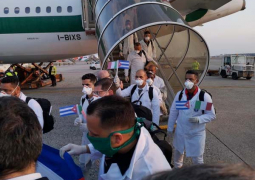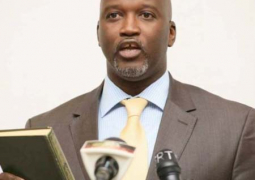It has been a welcomed move by many, especially businesspeople in The Gambia.
The Gambia has become the 49th country to establish diplomatic ties with The People’s Republic of China which has a population of about 1.380 billion inhabitants.
China assists Africa without pre-conditions; they hardly assist with cash. All projects funded by China are done and supervised by them. They bring their own people and equipment.
Gambia cut off relations with China in 1994. During the First Republic they assisted The Gambia to cultivate rice in Jahally Pacharr, built the Independence Stadium, the Banjul Police Headquarters, and the Supreme Court.
On 4 December 2015, in South Africa, during the Africa-China summit, China committed 60 billion US dollars to Africa’s development.
Gambia and China have agreed to cooperate in fields such as agriculture, fisheries, trade and investment, infrastructural development, health, education, aviation and transport, tourism and cultural exchange and other specific projects.
Gambia could make good use of this relationship to beef up most of the country’s socio-economic sectors and revamp especially areas where the economy is facing challenges.
Part of this effort could be, building and rehabilitating roads with double lanes, getting new ferries, constructing town halls in Banjul, KMC , Brikama, Farafenni and Basse, improving the energy sector, inviting Chinese doctors specialized in certain common diseases, sending Gambians to study and learn skills to assist in the field of agriculture, especially rice production, to attain food self-sufficiency.
We could also get bridges built in places such as Banjul-Barra, as well as get airlines in Gambia to cover the sub-region and other parts of the world.
Chinese investors can be encouraged to come to The Gambia and build factories to enable Gambian youths to work.
Invest in transportation such as buses and even trains, from Banjul-Basse, Barra-Farafenni, and Barra-Amdalai.
More assistance could also be directed at the police and immigration with quality equipment that could get things like the biometric Identification cards up and running, to produce standard alien cards, residential permits, licences, and passports.
Gambian businesspeople would have the opportunity to go to China without hindrance and export produce like groundnut, fish, and timber to China.
“Gambia should endeavour to explore maximum benefits from China.’’
The Point




